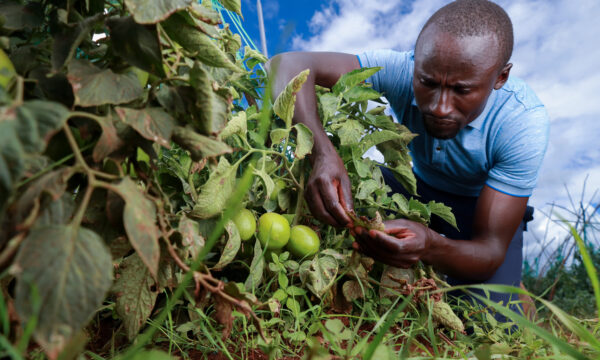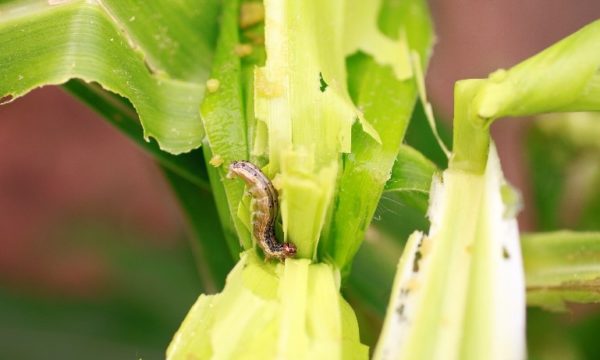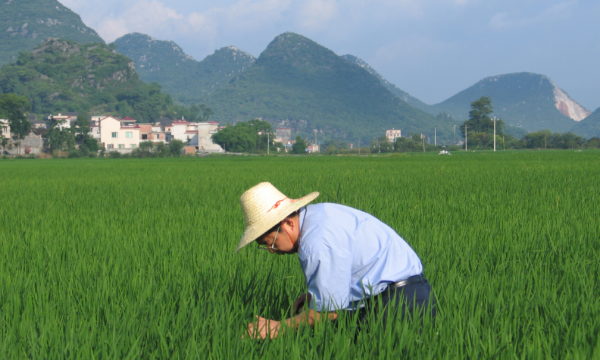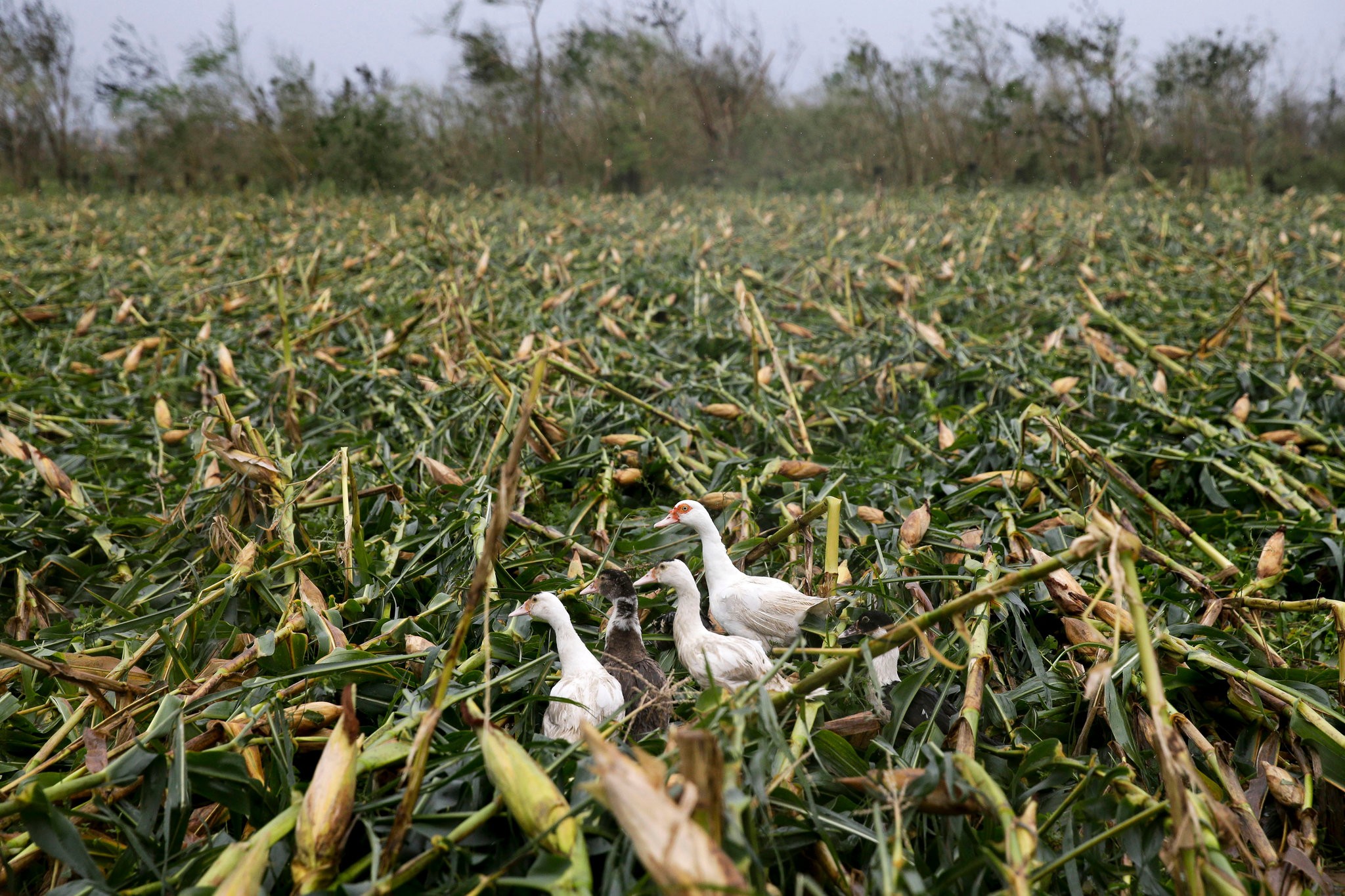
One of the researchers, Burkhard Schulz, shows sorghum that has been dwarfed with treatment of propiconazole, with untreated maize plants behind. © Purdue Agricultural Communication / Tom Campbell
Plant scientists at Purdue University in Indiana, USA, along with their colleagues from Seoul National University in South Korea, have found a way to keep crop plants small without having a reduction in yield. The diminutive plants have reduced resource requirements and are more tolerant of severe weather conditions.
The technique of creating dwarf crops, in this case maize and sorghum, involves application of a chemical that inhibits steroid production within the plants. Steroids are a type of plant hormone that, among other things, promote cell elongation, increasing plant height and leaf length. Originally, the researchers found that a compound called brassinazole was an effective steroid inhibitor but, as this chemical cost thousands of dollars for just one gram, an alternative was sought. Propiconazole, a fungicide that is used on golf courses, was found to work even better and was a fraction of the price.
Treatment with propiconazole led to dwarf maize plants with shorter leaves. However, the amount of grain produced was not reduced. As the plants are smaller, they require fewer nutrients and less water. Farmers growing these plants would therefore not have to use as much fertiliser. Also, the reduced stature means that the crops are less likely to be toppled by high winds or rainstorms.
By preventing steroid production, the resulting crops are all female, which is a positive feature for seed producers who have to manually remove the male parts of their plants so that they don’t self-pollinate.
The next stage of this research is to see if propiconazole can be used to inhibit the growth of other major grain crops. The researchers also plan to work out which genes are affected by the application of this chemical.
Read more:
Hartwig T, Corvalan C, Best NB, Budka JS, Zhu J-Y, et al. (2012) Propiconazole Is a Specific and Accessible Brassinosteroid (BR) Biosynthesis Inhibitor for Arabidopsis and Maize. PLoS ONE 7(5): e36625. doi:10.1371/journal.pone.0036625
Quick, D. (2012) Dwarf plants could reduce demands for water, fertilizer, nutrients and pesticides. Gizmag. Available from: http://www.gizmag.com/dwarf-plants/22561/
Wallheimer, B. (2012) Tiny plants could cut costs, shrink environmental footprint. Purdue University News Service. Available from: www.purdue.edu/newsroom/research/2012/120514SchulzFungicide.html
1 Comment
Leave a Reply
Related News & Blogs
How does crop rotation help keep pest populations in control?
Crop rotation is a simple, effective way to manage pests, improve soil health, and boost yields. Suitable for all growers, crop rotation supports sustainable agriculture and reduces the need for chemical inputs. By targeting pest lifecycles and reducin…
6 June 2025





[…] exciting piece of research that has the potential to reduce resource input into maize farming was highlighted on the Plantwise blog recently. Hartwig et al. predicted that the fungicide propiconazole would disrupt brassinosteroid […]